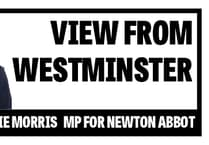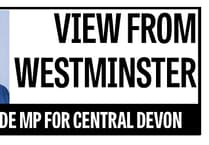THE Northern Ireland Executive and the Northern Ireland Protocol took centre stage last week.
Legislation was passed in the House of Commons to extend the deadline for calling another Northern Ireland Assembly election if the current Executive is not restored by January 2024.
This legislation was necessary because the sticking point that is preventing parties in Northern Ireland from taking their seats in Stormont, the Northern Ireland Protocol, has yet to be renegotiated. Until it is, even if elected, many members would not take their seats.
The Protocol is the agreement the UK government signed with the EU during the Brexit talks to allow goods to be traded between The EU and the UK across the land border between Northern Ireland and the Republic of Ireland. The EU is concerned to ensure the integrity of its singe market.
The UK is concerned to protect the sovereignty of the United Kingdom of course including Northern Ireland. There have been practical problems with the protocol, which impact not just those living in Northern Ireland but the whole of the UK. The Northern Ireland Protocol Bill was designed to address this, but it is stalled in the House of Lords.
The Prime Minister has sought to address the issues this week and some good progress has been made – but not enough. Goods moving from the UK to the EU can be dealt with through red and green traffic lanes. Green lanes for goods going to Northern Ireland for consumption there attract minimal checks, and red lanes for goods ultimately destined for the EU which will need to conform with EU rules.
However it is still the case that manufactured goods and agri-products must conform to EU not UK standards under the protocol as it stands if produced in Northern Ireland. That clearly can’t be right.
Of more concern, under the protocol as currently written, the UK cannot pass laws or introduce taxation which isn’t compliant with EU law in Northern Ireland. So, if we want to reduce or change VAT we can’t do it at all because no sovereign nation would regulate one part of its territory differently to another. And the final arbiter of all this is- the European Court of Justice! So there is quite a lot that still has to be fixed!
l The issue of sky-high energy bills remains a big issue! Businesses in particular are very concerned about how they will cope when the current scheme ends and the new one starts. The new scheme is significantly less generous and the exceptional support for high energy users doesn’t include most of the hospitality sector which desperately needs help.
The freezers can’t be switched off and the pizza ovens have to be left on to function. You can’t switch them on and off when the next pizza order comes in! The result has been pizzas coming off the menu and businesses reducing their trading hours.
This week as a member of the Public Accounts Committee I was able to drill down into the problem. The Federation of Small Businesses and UK Hospitality explained what wasn’t working and why. Unlike the domestic market, businesses have no price cap and no regulator ensures a fair marketplace and fair competition. Some bills have gone up 800%! The public sector, our schools and hospitals are in the same position facing eyewatering bills. So what is needed is, first, a new role for OFGEM to create and regulate a fair marketplace for businesses and to introduce new pricing structures.
Shorter term we need intervention by government working with suppliers to enable the sky-high prices in fixed term contracts to be renegotiated now the wholesale price of energy has come down. Finally, the hotel, restaurant and pub sectors need to be included in and recognised as high energy users in the new scheme enabling them to apply for the extra help they need.
As always, if you would like to book a surgery appointment (in-person or virtual) or raise a specific issue, please call my office on 01626 368277 or email annemarie.morris.mp@parliament.uk to arrange an appointment.




